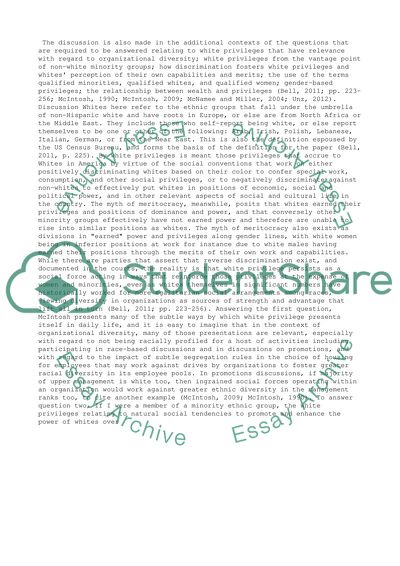Cite this document
(“White Privilege and the Myth of Meritocracy-Diversity in Organizations Essay”, n.d.)
White Privilege and the Myth of Meritocracy-Diversity in Organizations Essay. Retrieved from https://studentshare.org/business/1490429-white-privilege-and-the-myth-of-meritocracy
White Privilege and the Myth of Meritocracy-Diversity in Organizations Essay. Retrieved from https://studentshare.org/business/1490429-white-privilege-and-the-myth-of-meritocracy
(White Privilege and the Myth of Meritocracy-Diversity in Organizations Essay)
White Privilege and the Myth of Meritocracy-Diversity in Organizations Essay. https://studentshare.org/business/1490429-white-privilege-and-the-myth-of-meritocracy.
White Privilege and the Myth of Meritocracy-Diversity in Organizations Essay. https://studentshare.org/business/1490429-white-privilege-and-the-myth-of-meritocracy.
“White Privilege and the Myth of Meritocracy-Diversity in Organizations Essay”, n.d. https://studentshare.org/business/1490429-white-privilege-and-the-myth-of-meritocracy.


